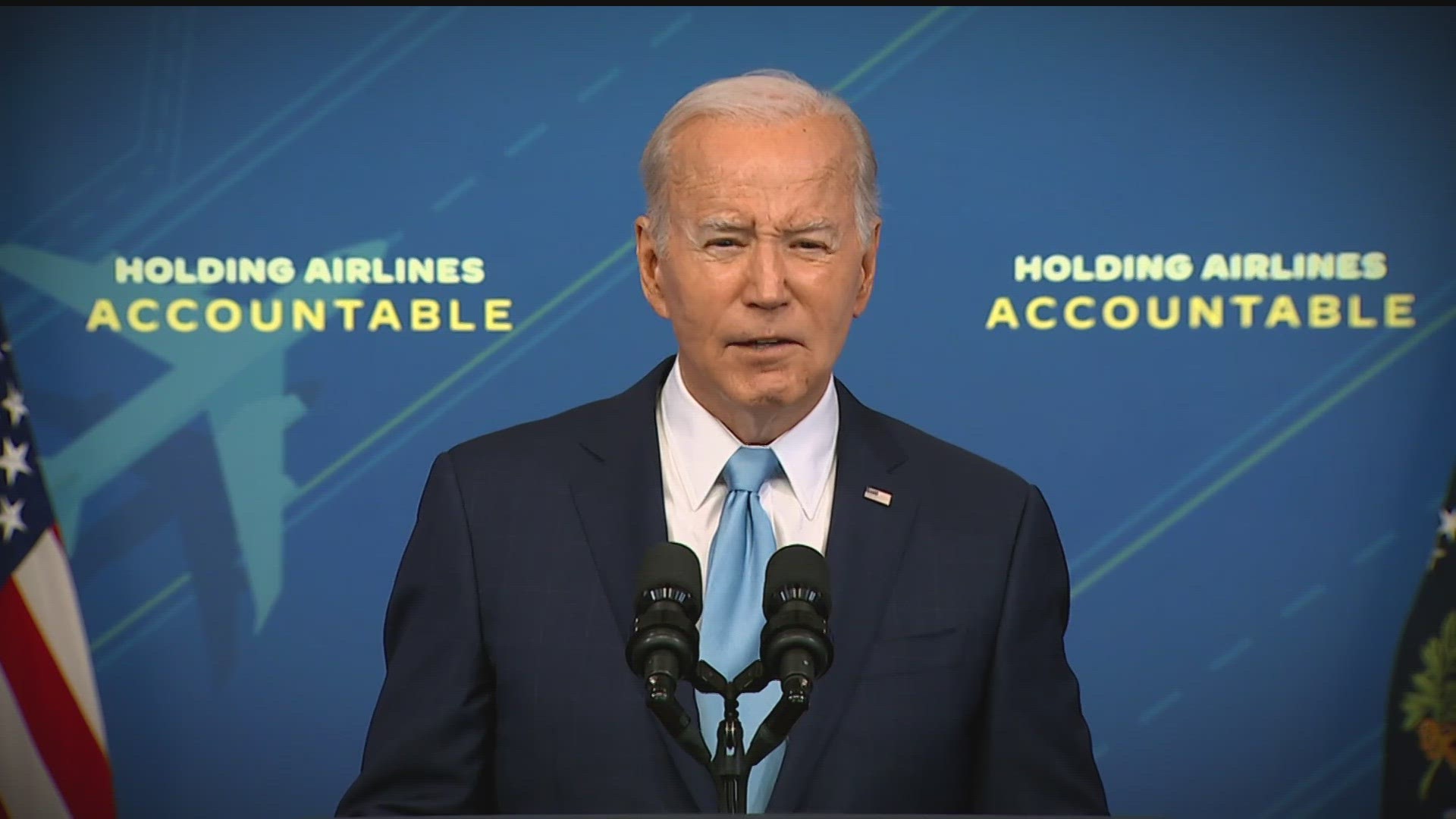MINNEAPOLIS — The Biden administration announced a new proposal on Monday requiring airlines to offer more robust reimbursement to passengers in the event of a cancellation or long delay.
Federal law already requires airlines to refund travelers in the event of a canceled flight, and most major airlines voluntarily offer vouchers for food, hotels, and transportation in the event of cancellations or major delays that they cause.
However, Biden said Monday that airlines should go even further, by also requiring reimbursement in the form of cash compensation and frequent flyer miles -- something most airlines do not currently offer.
"I know how frustrated many of you are at the service you get at your U.S. airlines, especially after you, the American taxpayer, stepped up in 2020… in the early days of the pandemic, to provide nearly $50 billion in assistance to keep the airline industry and its employees afloat," Biden said. "I get it. That's why our top priority has been to get American air travelers a better deal."
The Department of Transportation will write the rules later this year, according to the White House, although it's not clear when they might officially take effect. The Biden administration has also launched a website, FlightRights.gov, where travelers can learn what the airlines currently offer under reimbursement policies.
At MSP on Monday, passengers like Suzanne Dunya liked the idea of more reimbursement requirements for airlines.
"I think it's really good," Dunya said. "If you're going to waste people's time, like canceling or having a delay that's your fault -- I think it's good you compensate them some way."
KARE 11 reached out to four of the major air carriers on Monday for comment: Delta, American, United and Southwest. All of them pointed to a statement from Airlines for America, which lobbies on behalf of the industry.
That group noted that more than half of canceled flights last year were due to weather, out of the control of the airlines.
"Carriers have taken responsibility for challenges within their control and continue working diligently to improve operational reliability. This includes launching aggressive, successful hiring campaigns for positions across the industry and reducing schedules in response to the FAA's staffing shortages. In 2022, carriers reduced their schedules by about 15% to alleviate pressure on the National Airspace System (NAS), and U.S. airlines are currently accommodating record demand while operating 10% fewer flights than in 2019 to reduce pressure on the system," Airlines for America said. "We look forward to working with the Administration to ensure U.S. airspace remains the safest airspace in the world while supporting robust marketplace competition that provides transparency and vast options for consumers."
Delta also issued its own statement: "Second only to safety, Delta's priority is to do right by our customers when delays or cancellations happen. Our focus is on providing industry-leading operational reliability and customer service, which is why our people are empowered to make personalized, real-time decisions to care for, accommodate and compensate customers for inconvenience from delays and cancellations, regardless of the cause."
However, a Delta spokesperson added that most of their flight delays and cancellations are due to weather. Those types of disruptions wouldn't apply to the new DOT rules, and Delta says that "changing our policies would cause confusion among customers and is incompatible with our culture and commitment to industry-leading customer service."
Watch more local news:
Watch the latest local news from the Twin Cities and across Minnesota in our YouTube playlist:

